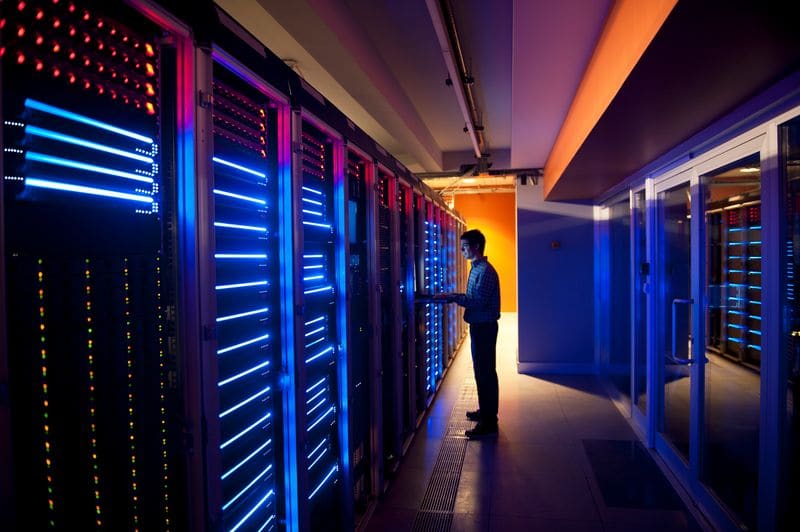What is a Server?
A server is a device or software that accepts and responds to network requests. The device making the request and receiving the server’s response is called a client. On the Internet, a “server” usually refers to a computer system that receives requests for web files and sends those files to the client.
What are servers used for?
Servers manage network resources. For example, a server can control access to a network, handle email, manage print jobs, or host a website. They can also perform intense calculations. Some servers are dedicated to a specific task or website, known as dedicated servers. However, many servers today are shared servers, handling tasks like email, DNS (Domain Name System), FTP, and multiple websites.

Why are servers always on?
Servers manage network resources. For example, a server can control access to a network, handle email, manage print jobs, or host a website. They can also perform intense calculations. Some servers are dedicated to a specific task or website, known as dedicated servers. However, many servers today are shared servers, handling tasks like email, DNS (Domain Name System), FTP, and multiple websites.
Examples of servers
The following list contains links to various server types.
- Application server
- Blade server
- Cloud server
- Database server
- Dedicated server
- Domain name service
- File server
- Mail server
- Print server
- Proxy server
- Standalone server
- Web server
How do other computers connect to a server?
In a local network, the server connects to a router or switch used by all other computers on the network. Once connected, other computers can access the server and its features. For example, a web server allows users to view a website, search, and communicate with others on the network.
An Internet server works similarly but on a larger scale. The server gets an IP address from InterNIC or a web host. Users usually connect to a server using its domain name, registered with a domain name registrar. When users connect to a domain name (like “1REALTOUR.com“), a DNS resolver translates the name to the server’s IP address.
Domain names are easier to remember than IP addresses. They also allow server operators to change the server’s IP address without affecting user access, as the domain name remains the same.
Where are servers stored?
In a business environment, servers and other network equipment are often stored in a closet or secure room. These areas help protect sensitive equipment from unauthorized access.
Remote servers, not hosted on-site, are located in data centers. Another company manages the hardware, while you or your company configure it remotely.

What is a Linux server?
A Linux server is a computer running a version of Linux and is connected to a network or the Internet. Many web servers that host web pages on the Internet are Linux servers.
Can my computer be a server?
Yes, any computer, including a home desktop or laptop, can act as a server with the right software. For example, you could install an FTP server program to share files with other users on your network.
However, consider the following points:
- Your computer and the server software must always be running to stay accessible.
- Using your computer as a server consumes resources like processing power and bandwidth, which may reduce performance for other tasks.
- Connecting a computer to a network and the Internet can expose it to new security risks.
- If the service you provide becomes popular, a typical computer may not have enough resources to handle all the requests.
Conclusion
In conclusion, servers play a crucial role in managing network resources, hosting websites, and handling various online services. While any computer can act as a server with the right software, it’s essential to consider the resource demands and security risks involved. For businesses, dedicated or shared servers offer more robust solutions, often managed in secure data centers. Understanding the differences between local and Internet servers, and the importance of domain names, helps ensure efficient and secure network operations. Whether using a Linux server or other types, proper setup and maintenance are key to achieving optimal performance.
Read More What Are Short Tale Keywords?







